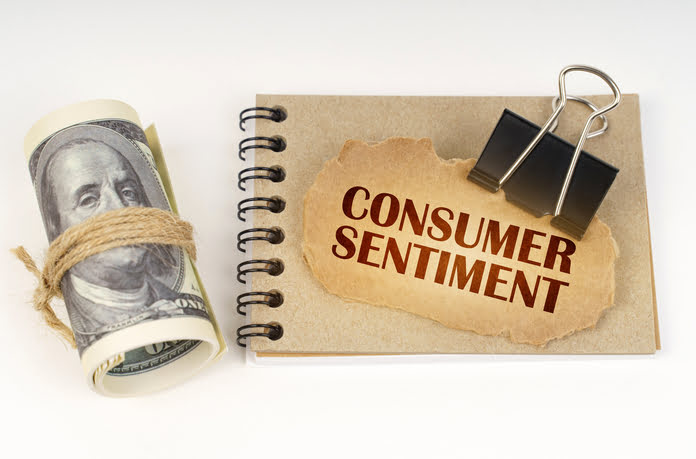US consumers welcomed the new year with a surge of optimism about the economy, income growth, and a more favorable inflation outlook. The University of Michigan’s consumer sentiment index experienced its largest monthly advance since 2005, rising by 9.1 points to reach 78.8 in January. This preliminary reading is the highest level since July 2021, exceeding the most optimistic estimates in a Bloomberg survey of economists.
The increased confidence, coupled with a decline in year-ahead inflation expectations to the lowest level since the end of 2020, has the potential to sustain demand and support the continued expansion of the economy. The more positive views on inflation may also provide reassurance to Federal Reserve officials as they contemplate the timing of interest rate adjustments.
Andrew Hunter, Deputy Chief US Economist at Capital Economics, commented that the rebound in confidence and the decrease in inflation expectations indicate that the economy is on track for a soft landing.
The consumer sentiment survey revealed a widespread improvement in optimism, spanning various demographics such as age, income, and political affiliation. Over half of households anticipate their incomes to grow at least as fast as inflation, marking the highest share since mid-2021.
Consumers now expect prices to rise at an annual rate of 2.9% over the next year, down from the 3.1% expected a month earlier. They anticipate a 2.8% increase in costs over the next five to 10 years, reaching a four-month low.
Joanne Hsu, Director of the survey, highlighted that improvements in inflation expectations are supported by perceptions of easing price pressures in buying conditions for durable goods and vehicles. Consumers are increasingly expecting the Fed to lower interest rates this year, reflecting the belief that inflation will not accelerate soon.
The report also indicated that stock market expectations reached the highest level in over two years. Consumer perceptions of their current financial situation hit a two-year high, while expectations for future finances climbed to the highest since 2021. Buying conditions for durable goods reached a nearly three-year high.
Additionally, the share of respondents with a favorable view of home-buying conditions rose by the most in two years, according to the University of Michigan’s report.
While separate figures from the National Association of Realtors showed a decline in sales of previously owned homes in December, it was noted that activity is picking up as mortgage rates settle lower, suggesting a positive outlook for the housing market in the coming months.
Featured Image: Freepik









